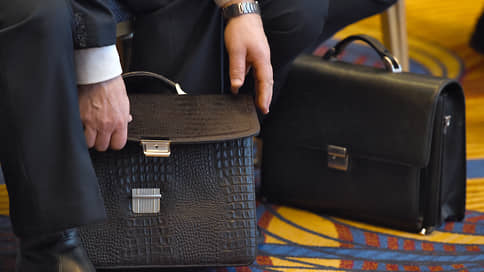Citizens were marked by indiscriminate behavior – Newspaper Kommersant No. 170 (7371) of 09/15/2022
[ad_1]

Unqualified investors were not stopped by testing, which has become more complicated since the beginning of September, for the purchase of instruments with increased risk. The proportion of those who passed the test on the first attempt even increased compared to last year. At the same time, interest in the test on foreign shares has decreased against the backdrop of infrastructural and regulatory restrictions. However, clients who are ready to take risks show an increased demand for “rounding off”, and all the upcoming tightening, according to experts, will negatively affect the domestic market.
The new testing rules for unqualified investors, approved by the Bank of Russia on September 1, did not cause any particular difficulties for brokers’ clients, a Kommersant survey showed. At Otkritie Investments, after changing the testing procedure, 75% of clients passed it on the first try, at Alor Broker – 85%, at RSHB – 65%. In Ivolga Capital, the figure was 46%, but “the proportion of clients who eventually pass the test tends to 100%.”
These figures are even slightly higher than they were a year ago (50-60%), when the first version of the tests was adopted (see Kommersant of January 18). According to the new standard, there are four questions, but they drop out randomly from eight. As explained in the Central Bank, “the purpose of the changes was not to complicate the testing procedure, but to limit the possibility of retaking the test by mechanical enumeration of possible answers.”
Tests for access to bonds — out of quotation lists, convertible into other securities or structured — turned out to be the most popular among brokers’ clients. At the same time, market participants note a decrease in interest in testing for foreign shares, unqualified investors will lose their right to buy in January 2023. According to Dmitry Lesnov, Head of the Finam Customer Service Development Department, interest has decreased by 20% in three months. A year ago, foreign securities were a priority for broker clients.
The current situation may be related to the freezing of a significant part of assets in foreign depositories, as well as the fall in quotations of foreign securities (the S&P 500 index has fallen by 16% since the beginning of the year). The Western stock market is under the pressure of high inflation and tightening of monetary policy, now there are no drivers for growth and further decline is possible, says Nikita Losikhin, head of the investment consulting department for ultra-wealthy clients of Veles Capital investment company.
At the same time, the number of people wishing to obtain the status of qualified investors is growing. In Alor Broker, after the decision to restrict access to foreign securities (see Kommersant of September 7), the number of requests for “finishing” doubled. According to the Central Bank, as of the end of July, there were more than 530,000 qualified investors in total in brokerage services, in trust management and in mutual funds. In Finam, the number of clients who have received the status of a qualifier is “five times higher than in the same period in 2021.” For retail brokers, their share is 20-30%. In “Veles Capital” and “Renaissance Capital” all clients are qualified.
The vast majority of clients, explained in the RSHB, receive the status of qualified on the basis of the availability of assets for a specified amount. However, in the context of the planned increase in this amount, obtaining the status of a qualified investor may become a serious problem, says a representative of Ingosstrakh Investments. In addition, according to him, there are risks of forgery of documents both to confirm the amount and to confirm qualifications from another participant. “The last norm was not met with optimism, and market participants will only trust intra-group qualifications, which will also have a negative impact on customers,” Kommersant’s interlocutor emphasized.
At the same time, regulatory and technical restrictions on investments in foreign securities will increase the risks of investments in the Russian market as well. “For a Russian investor, a wide diversification of assets will become unavailable, which will lead to the risks of acquiring low-quality securities, as well as high-quality securities at an inflated price, since there are no more than a hundred such instruments in the Russian Federation,” Ingosstrakh Investments notes.
The decision of the Central Bank may provoke a flow of clients to foreign professional participants who cannot provide protection to Russian investors within the framework of our legislation, Mr. Lesnov believes. In addition, he notes, clients can become victims of fraudsters who, under the guise of providing brokerage services “without restrictions”, can commit illegal acts and leave the investor without money.
[ad_2]
Source link





